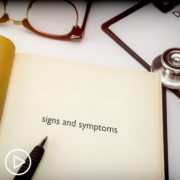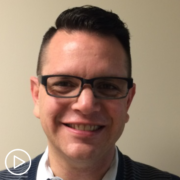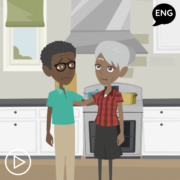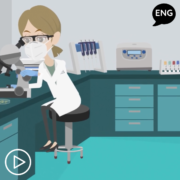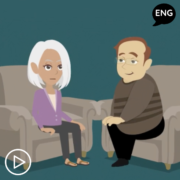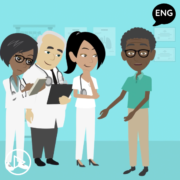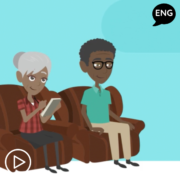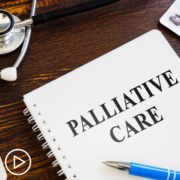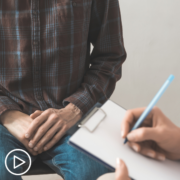Why Is It Important to Address Whole Person Care? from Patient Empowerment Network on Vimeo.
What is whole person care, and why is it important to address? Dr. Nicole Rochester, Dr. Broderick Rodell, Aswita Tan-McGrory, and Sasha Tanori discuss the factors that whole person care examines, obstacles of healthcare systems, and how to advocate for optimal care.
See More From Rx for Community Wellness
Related Resources:
Transcript:
Dr. Nicole Rochester:
So let’s start with a definition of whole person care. Whole person care is defined as the patient center, optimal use of diverse healthcare resources to deliver the physical, behavioral, emotional, and social services required to improve the coordination of care for patients, their well-being, and their health outcomes. So I’d like to start with you, Aswita, and I’d like to know your thoughts on whole person care, and why do you think that this has been such a taboo subject for so long, and also why is it important for us to address whole person care?
Aswita Tan-McGrory, MBA, MSPH:
I think that part of the problem is that our healthcare system is very, very fragmented, so if we think about…we have primary care, then we have specialty care, then we have care in the hospital, and oftentimes there’s no communication, or communication is sort of inconsistent between those pieces. And so we as a healthcare system don’t promote this idea of whole person care, where you would really look at a patient, see them, see them in their environment, oftentimes, we’re seeing patients in our own institutions and we really don’t know anything about what we’re sending them home to, right? Unless we ask or we screen.
So I actually think it starts with how we build our systems in many ways, as a very sort of system that doesn’t really work to encourage thinking about the patient in the whole way, and that means the primary care physician being part of the care team with specialty care, getting that conversation just from an implementation perspective, I think this is a real challenge in our system, there’s other things as well, but I think that’s a big piece towards how do we ensure that for the patient…and I’m sure all of us have had our own experiences in healthcare where we are like, “They’re not talking to each other. Well, why does this doctor not talk to my primary care doctor? Aren’t they like logging into the same system?” And then if you go outside of your system, it’s even more challenging, so.
Dr. Nicole Rochester:
I completely agree, and I can relate to every single thing you said as both a physician and as a former caregiver, I will say as a pediatrician, I felt that this idea of whole person care, even before it was really a thing that’s kind of incorporated in our practice out of necessity, and we know that it’s important for the health of children to be involved in what happens to them at school and what happens to them in their child care setting, what’s happening in their homes.
And so that was kind of my reference point, but when I became a caregiver for my dad and kind of stepped into the world of adult medicine, I experienced exactly what you describe, Aswita. Just this fragmentation providers not talking to one another, and just a lack of appreciation for the importance of our environment and the things that we’re exposed to in our homes than in our communities, and how that is so intricately connected to our health. So I really appreciate that.
Aswita Tan-McGrory, MBA, MSPH:
Yeah, I want to just tag on something you just said is, I work with a lot of pediatricians and pediatric hospitals, and they are the angels in our system, if I can say so, you…and they definitely have cornered that market of really thinking of social determinants of health or the whole system for their pediatric patients in a way that I think adult medicine is just catching up on. So I’m totally in agreement, like what you said, and I think it’s because you’re working with kids, you can’t not talk to the parents, not think about what is the school like you know so you’re forced to because of that environment, but that’s really a model that we should be using for all of our patients.
Dr. Nicole Rochester:
I completely agree, completely agree. Sasha, what are your thoughts about whole person care and where are your providers gotten it, right, maybe where have they gotten it wrong?
Sasha Tanori:
For me personally, I can’t speak on every Mexican American, but at least for me personally, it’s definitely been a struggle because where I come from, it’s a very like low demographic, we don’t have a whole lot of resources and stuff like that. So getting care is…it’s not the easiest. I’ve had to go to several doctors before I even got diagnosed, and I didn’t even get diagnosed in my hometown, I had to be sent to San Diego because they had no idea what was going on. They were like, “We don’t know what’s wrong with you. Go home.” They kept giving me misdiagnosis after misdiagnosis, and especially with being a plus-sized Mexican American, they were just like, “Oh, if you lose a couple of pounds, you’ll be fine.” And I show up at the hospital with bruises on my body and they’re like, “It’s because you’re overweight.” And I’m like, “That doesn’t really make a whole lot of sense.” So yeah, it was definitely difficult trying to find a good healthcare professional who would listen to me, and I had to leave out of my Imperial Valley, out of my demographic to go find the help because…
And even then, they were kind of like, “Well, it could be this blood disease, it could be this, it could be that.” And they were like, “Oh well, is anyone in your family…you’re Mexican, is there anyone in your family who has this type of illness, do they have diabetes, or this or that?” And I was like, “No, just help me. Don’t worry about them. Don’t worry about my family. Don’t worry about them. Worry about me.” And finally, I think after two months or something of just going to doctors’ appointments, after doctors’ appointments, they finally were able to give me proper diagnosis. But it shouldn’t have to take that many trips to the hospital and seeing this many doctors for them to figure out what was wrong. And a lot of it is because of, like you said, it’s because of the whole inequity of being a person of color, and I’m only half-Mexican. But a lot of people see that part of me first, and I think they automatically start being prejudiced, or they start judging you based on the way you look, the way you talk and stuff like that, so that way. It’s definitely been a struggle, especially being here in the Imperial Valley, we’re so close to the Mexican border. So they just automatically…they’re like, “No,” it’s just straight up, “No.”
Dr. Nicole Rochester:
Wow, I’m really sorry about that, and I appreciate you sharing your story. What about you, Broderick? And you’re a naturopathic physician, you’re a wellness expert, so you probably fully…not probably you fully understand the importance of whole person care. I feel like that’s at the root of your specialty, so maybe you can give us some ideas about how you approach this and why whole person care is so important.
Broderick Rodell:
Yes, thank you. And I do fully understand the various issues and concerns that can arise when you go to a medical doctor and the specialist and not talking to your primary care physician. And so I focus a lot of my attention on the individual and what you can do as an individual to care for yourself, to educate yourself about well-being and help. It doesn’t deny the various social conditions or structural issues there. It’s just that I feel like we have our greatest amount of power, a great capacity to act and taking as much responsibility as we possibly can in our own care through educating ourselves about how our bodies work, how our mind works, how disease manifestation arises, taking advantage of the tools that we have available to us via the Internet and educating ourselves so that we can be advocates for ourselves when we have a conversation with the various medical practitioners. But I’ve also really emphasized what can I do to maximize my health, my well-being, what choices can I make in my life to make my life into a life with maximum wellness and well-being and minimal suffering? And I do spend a large amount of time focusing on training the mind, reducing stress, educating yourself around, what can I do to eat well, nutrition, what can I do to exercise? To get my body moving, what are the various things that I can do to care for myself to the best of my abilities and not give too much power over to medical doctors on a medical system that not always…
Now, I want to say, I’m going to be careful, I say this can be quite incompetent and that incompetence is associated with, I think what was mentioned earlier, a lack of communication. A lack of communication, the way the system is set up, it’s kind of dysfunctional and the various incentives and not enough time spent with patients. And if you’re not spending enough time with patients and you’re not communicating with other practitioners that are working with these patients, then you’re not going to have a very good idea of what’s going on in this patient’s life and what could be contributing to their illness. So, therefore, it’s incumbent upon the patient, we as individuals, to try to learn as much as we can and try to get our communities involved to help create educational programs to facilitate that education and that awareness.
Dr. Nicole Rochester:
I completely agree, Broderick, the ideas that you mentioned in terms of we as patients and family members and communities educating ourselves about our own health and advocating for ourselves as someone who left medicine to become a professional health advocate, I’m all about advocating for yourself, speaking up, understanding what’s going on with your body. And I know that that can be challenging. And some people feel like, “It’s unfair, if I’m sick, the last thing I should have to worry about is fiercely advocating for myself in a medical setting.” And it is unfair to some degree, but as you stated in this system and the system that we’re currently operating in it is absolutely necessary, and I love that you mentioned mind, body spirit. And as a traditionally trained physician, I will admit that we don’t get that connection, that’s not something that is part of our traditional training. And it’s unfortunate that we kind of just see the body over here, and then the mind over here. And we know that we are all…this is all part of who we are, and that if your environment is not optimal, if your mental health is not optimal, if your spiritual health is not optimal, then that’s going to manifest itself in your physical health.










